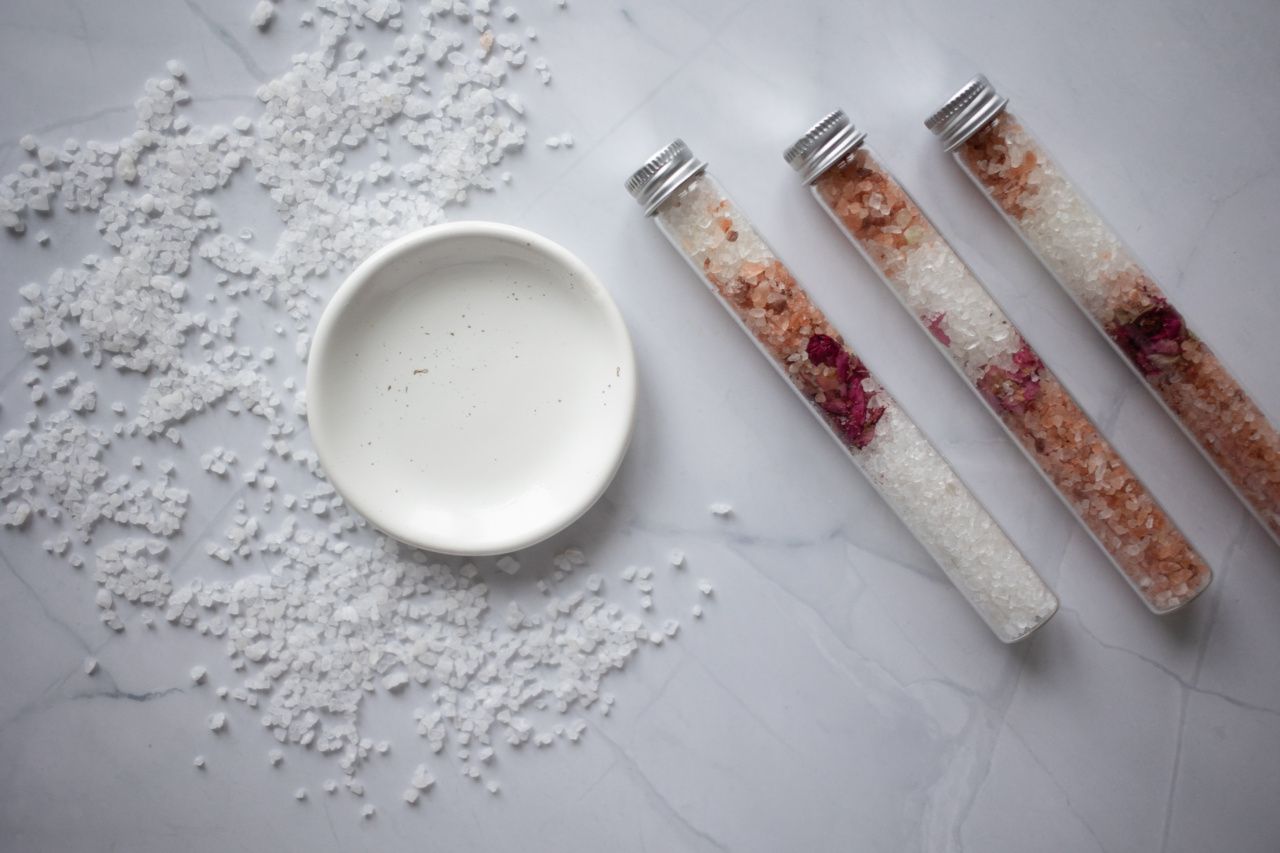Your skin is constantly exposed to environmental factors such as pollution and UV radiation that can cause skin to become dehydrated and dull-looking. This is where salt peeling can come in handy.
Salt peeling is a natural exfoliant that can help hydrate and rejuvenate your skin by removing dead skin cells, dirt, and oil. In this article, we will discuss how salt peeling can benefit dehydrated skin and provide step-by-step instructions on how to incorporate it into your skincare routine.
What is Salt Peeling?
Salt peeling is a natural exfoliating technique that utilizes the benefits of sea salt to scrub away dead skin cells and impurities from the skin.
The main component of sea salt is sodium chloride, which offers gentle exfoliation while also having hydrating properties. Sea salt also contains minerals such as magnesium, zinc, and potassium, which are beneficial for healthy skin.
Benefits of Salt Peeling for Dehydrated Skin
Salt peeling offers several benefits for dehydrated skin, including:.
Removal of Dead Skin Cells
Dead skin cells can accumulate on the surface of the skin, leading to a dull, lackluster complexion. Salt peeling helps to remove these dead skin cells, allowing newer, healthier skin cells to come to the surface.
This results in a brighter, more radiant complexion.
Improves Circulation
Salt peeling helps to improve blood circulation, which provides oxygen and nutrients to the skin. This increased circulation can help to promote healthier, more hydrated skin.
Hydrates the Skin
Sea salt is known for its hydrating properties, as it helps to draw moisture to the skin. This makes it an excellent choice for those with dehydrated skin, as it can help to boost moisture levels and restore a healthy, plump appearance to the skin.
Reduces Inflammation
The minerals found in sea salt, such as magnesium, can help to reduce inflammation and redness in the skin. This can be especially beneficial for those with sensitive or acne-prone skin, as it can help to calm any irritation or breakouts.
How to Incorporate Salt Peeling into Your Skincare Routine
If you have dehydrated skin and want to incorporate salt peeling into your skincare routine, follow these steps:.
Step 1: Cleanse Your Skin
Start by cleansing your skin with a gentle, hydrating cleanser and pat dry.
Step 2: Prepare Salt Peeling Mixture
Next, mix together sea salt and a nourishing oil such as coconut oil or olive oil. The ratio of salt to oil should be about 2:1. Mix the two ingredients together until they form a thick, grainy paste.
Step 3: Apply Salt Peeling Mixture to Skin
Gently apply the salt peeling mixture to your skin, using circular motions. Be sure to avoid the eye area and any areas of the skin that are irritated or broken.
Step 4: Rinse
After 5-10 minutes of gentle exfoliation, rinse your skin with warm water. Pat dry with a towel.
Step 5: Moisturize
Finish by applying a hydrating moisturizer to your skin to lock in moisture and keep it looking and feeling soft and supple.
Conclusion
Salt peeling is an excellent way to hydrate and rejuvenate dehydrated skin. It is a natural, gentle exfoliating technique that can help to remove dead skin cells, improve blood circulation, hydrate the skin, and reduce inflammation.
By following the steps above, you can easily incorporate salt peeling into your skincare routine and enjoy all the benefits it has to offer.































